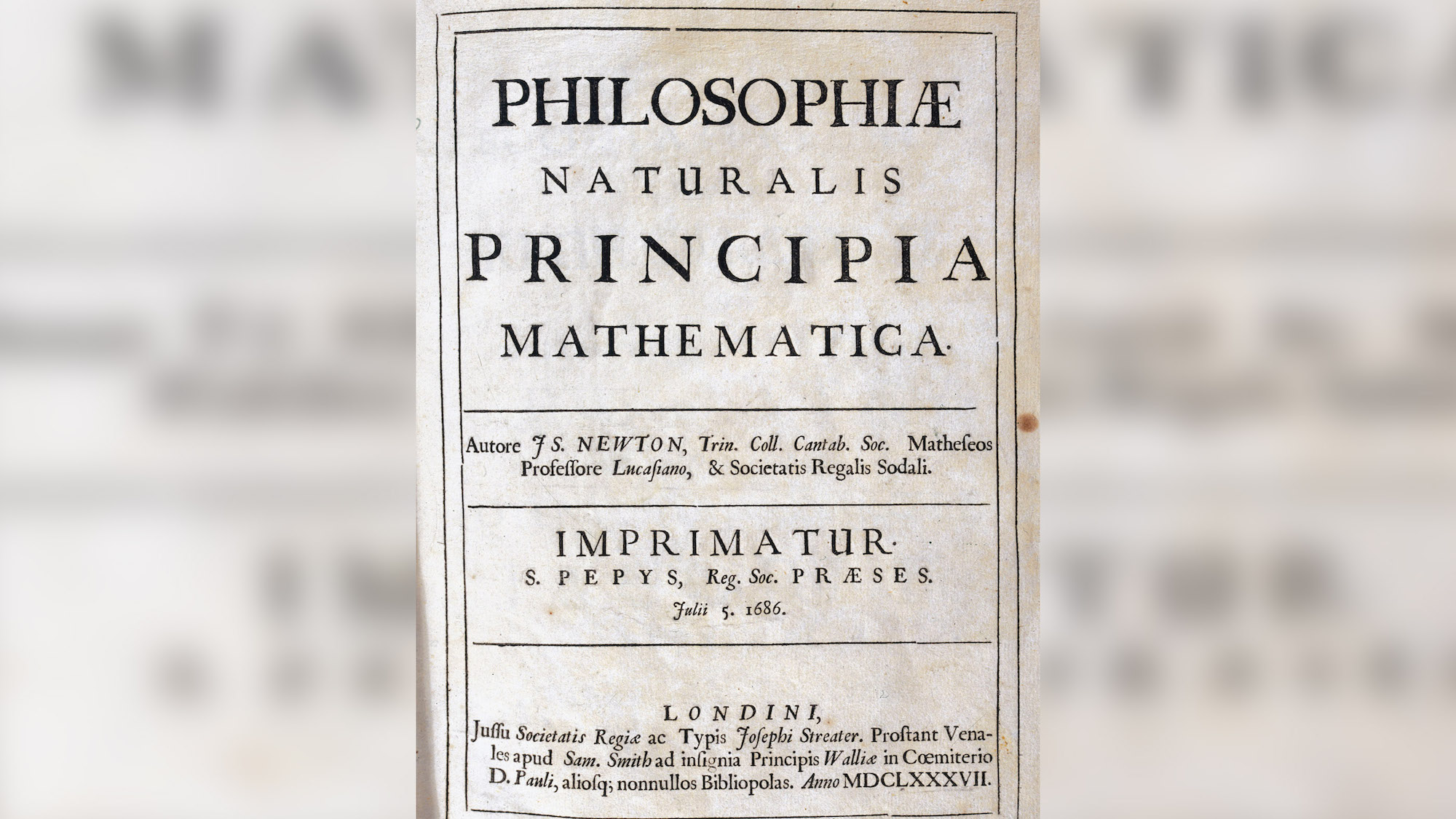Rare first edition of Isaac Newton's groundbreaking book found in Corsica
This book is the foundation for modern physics.

A rare first edition of Isaac Newton's groundbreaking book on the three laws of motion, the text that built the foundation for modern physics, was just discovered in a library on the Mediterranean island of Corsica, according to news reports.
Newton wrote "Philosophiae Naturalis Principia Mathematica" (Mathematical Principles of Natural Philosophy), in Latin in 1687. A first edition of "Principia Mathematica" made its way into the library on Corsica, which was founded by Lucien Bonaparte, one of Napoleon Bonaparte's brothers.
Vannina Schirinsky-Schikhmatoff, director of conservation at the Fesch public heritage library in Ajaccio, the capital of Corsica, learned of the book's whereabouts while reading an index of the library from Lucien Bonaparte himself.
Related: Creative genius: The world's greatest minds
"I found the Holy Grail in the main room, hidden in the upper shelves," she told Agence France-Presse (AFP). "The cover has a little damage but inside it's in excellent condition — this is the cornerstone of modern mathematics."
According to legend, Newton's investigation into the laws of gravity and motion began when a falling apple hit his head in Grantham, England. While the veracity of that story is questioned, historians do know that Newton had an extremely fruitful period during his student years at the University of Cambridge. The black plague had led to the university's closure for nearly two years, from 1665 to late 1666, so Newton spent that time at home diving into mathematics, physics and optics.
In his Principia, Newton detailed the three laws of motion, which include the following, as Live Science previously reported.
Sign up for the Live Science daily newsletter now
Get the world’s most fascinating discoveries delivered straight to your inbox.
- An object will remain in a state of inertia unless acted upon by force.
- The relationship between acceleration and applied force is F=ma.
- For every action there is an equal and opposite reaction.
First editions of "Principia Mathematica" are rare and treasured by collectors. In 2016, another Latin edition of this work hit the auction block at Christie's in New York, where it sold for $3.7 million to an undisclosed buyer. At the time, it was the most expensive printed scientific book ever sold at auction, Christie's reported.
The Fesch Library has around 50,000 books, according to Napoleon.org, so it's anyone's guess what other hidden treasures lie there.
- How Isaac Newton changed the world
- Force, mass & acceleration: Newton's second law of motion
- Equal & opposite reactions: Newton's third law of motion
Originally published on Live Science.

Laura is the archaeology and Life's Little Mysteries editor at Live Science. She also reports on general science, including paleontology. Her work has appeared in The New York Times, Scholastic, Popular Science and Spectrum, a site on autism research. She has won multiple awards from the Society of Professional Journalists and the Washington Newspaper Publishers Association for her reporting at a weekly newspaper near Seattle. Laura holds a bachelor's degree in English literature and psychology from Washington University in St. Louis and a master's degree in science writing from NYU.









